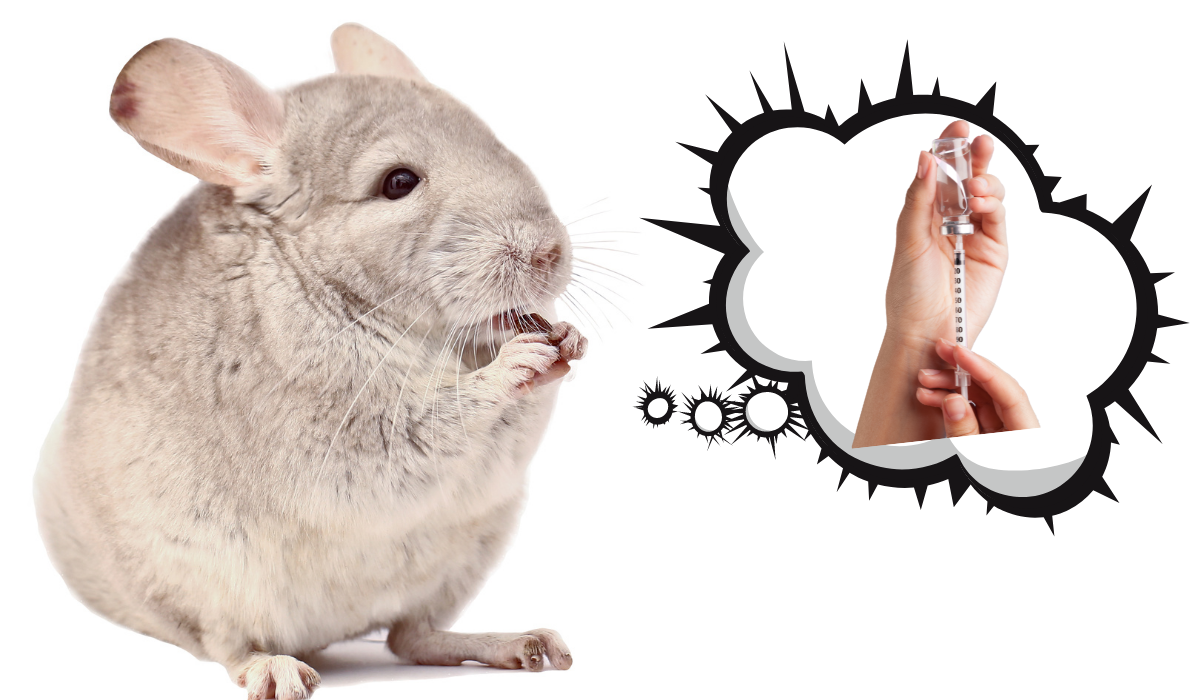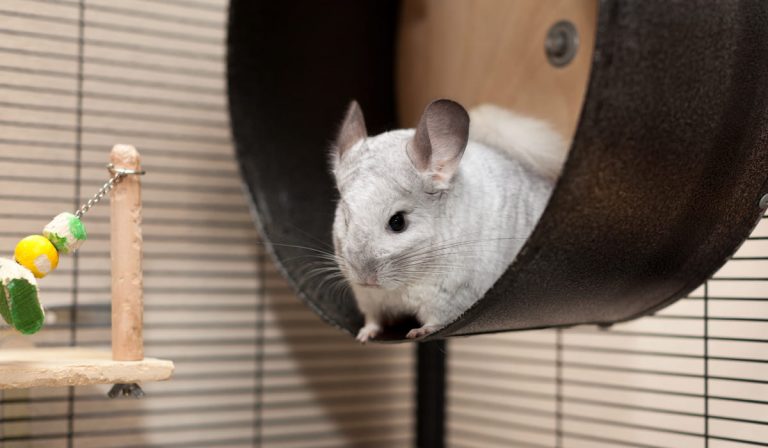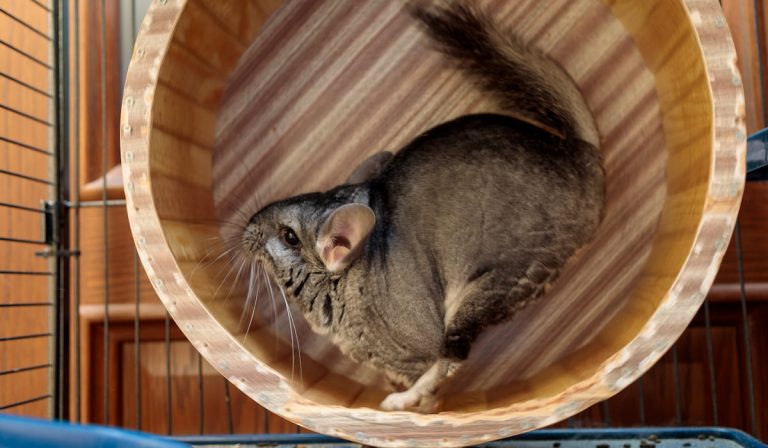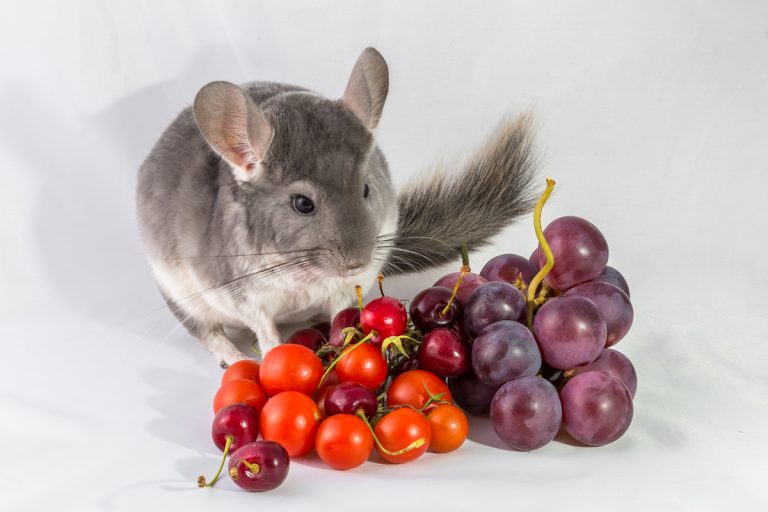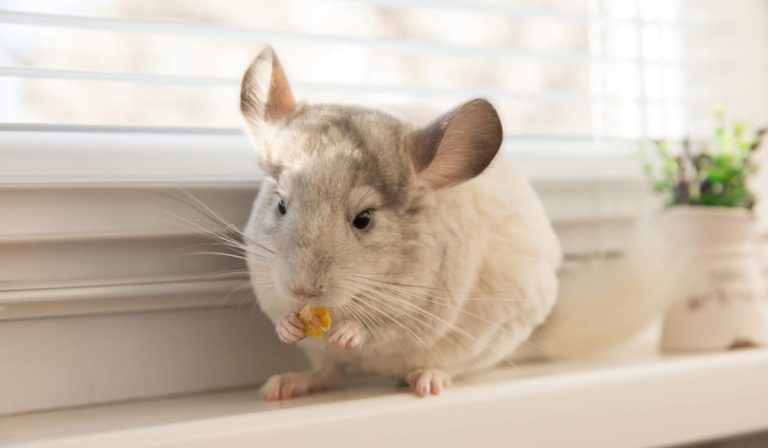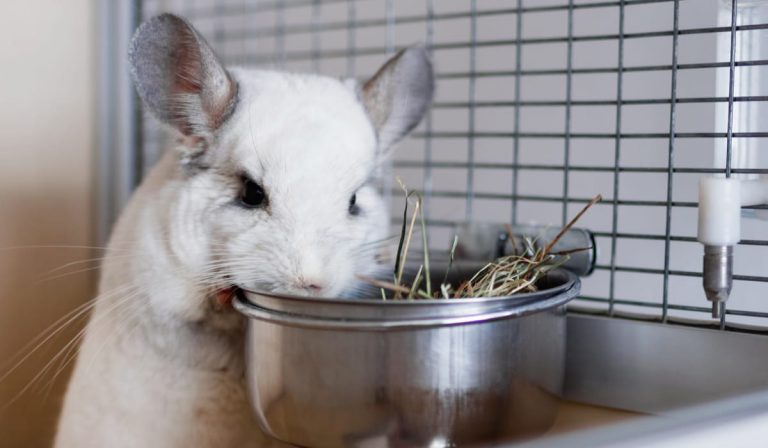Do Chinchillas Need Shots
Chinchillas are wonderful pets. They are easy and fun to keep.
One challenge pet owners may face is when their pet is sick. To prevent any disease, it is recommended that shots are given to pets.
Like other pets, do chinchillas need shots? If so, what shots do chinchillas need?
Chinchillas do not need shots. You can keep chinchillas without giving them shots because they rarely get sick of diseases that affect other pets.
There is also no law that states that chinchillas should be given shots.
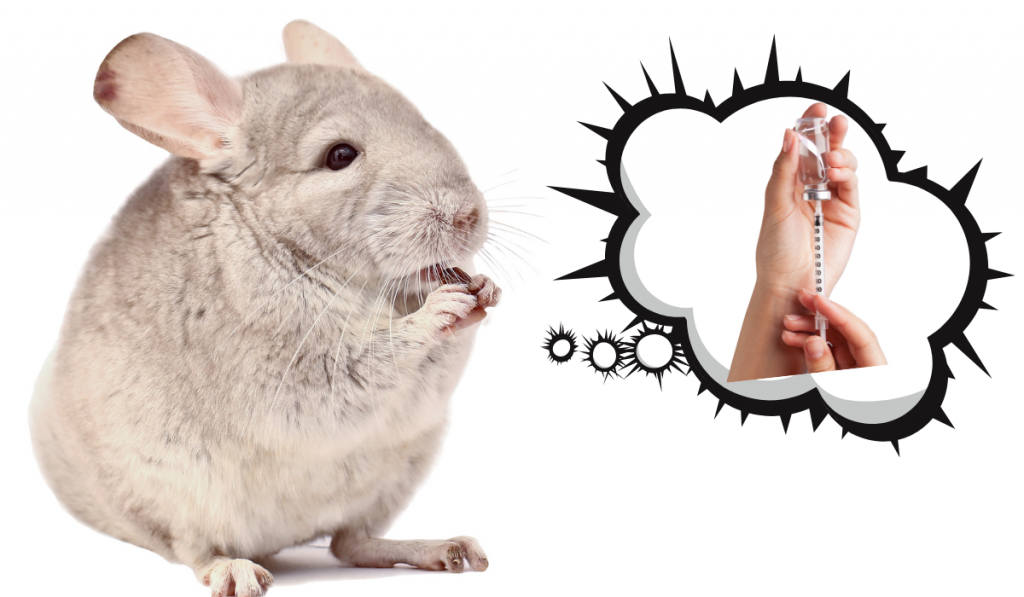
Why don’t chinchillas need shots? Does it mean that chinchillas do not get sick? Continue reading.
Should You Give Your Chinchillas Shots?
Chinchillas do not need shots. Unlike other pets, you can keep chinchillas without giving them shots. First of all, what are shots?
What Are Shots and Why Are They Important?
Shots or vaccines are administered to people and animals to prevent the outbreak or spread of diseases. Vaccines are usually made of inactive or dead organisms (that cause the disease).
When the immune system identifies this injected organism (which is harmless), it fights it.
Whenever the vaccinated person or animal gets exposed to the harmful disease, they usually do not become infected. Or if they are infected, their immune system easily fights off the infection.
As you can see, shots are important.
But if shots are important, why don’t chinchillas need them?
Why Don’t Chinchillas Need Shots?
Here are a few reasons chinchillas do not need shots:
- It Is Not Required By Law: There is no law that states that you must vaccinate your chinchilla.
- Chinchillas Are Adapted to a Different Climate: Chinchillas live in the Andean mountains of Chile. In their natural habitats, the relative humidity is low. This means that the organisms that infect your chinchillas in their natural habitats are quite rare in your environment as you probably live in a place with higher humidity.
- Chinchillas Usually Do not Get Rabies and Flu: Unlike dogs and other pets, chinchillas do not get diseases such as rabies and flu. These diseases are deadly to other pets.
- Chinchillas Live in Cages and Don’t Go Outside: One other reason your pet chinchilla might be safe from diseases is that chinchillas are usually raised in cages indoors. Pets that are restricted indoors have lower chances of getting an infection.
- Chinchillas Live in Small Groups: People who raise chinchillas usually raise just a small group of 2-5 in a large cage. Diseases spread slower in a small population.
As you can see, chinchillas do not need shots. You should note, however, that your vet has the final say.
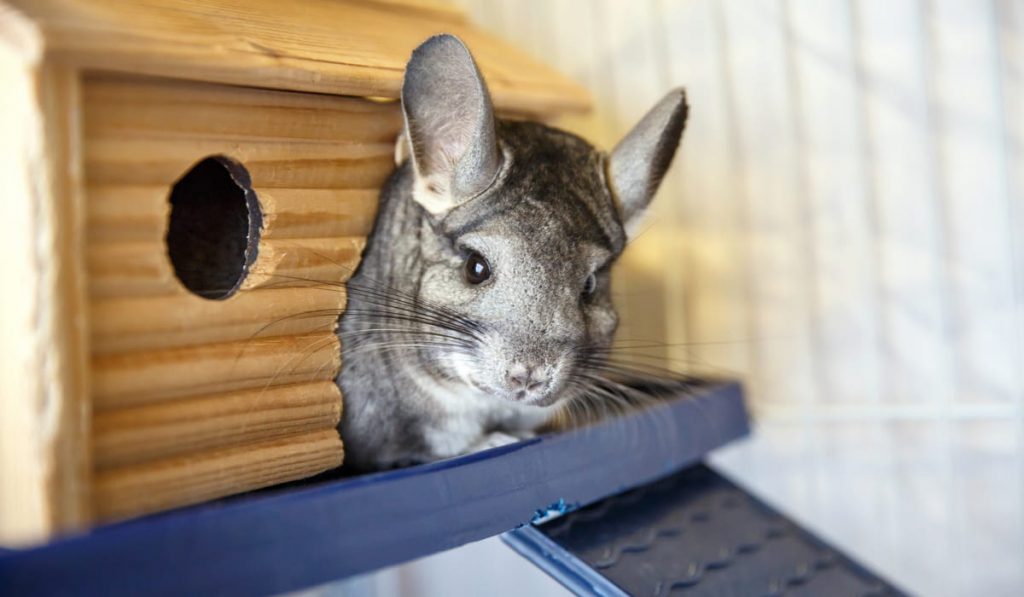
Potential Health Issues for Chinchillas
If chinchillas do not need shots, does it mean that they can’t get sick? Of course not.
Here are some potential health challenges for chinchillas:
1. Heat Stroke
Chinchillas are adapted to high altitudes and the temperature there is usually low. If you expose your chinchilla to direct sunlight or you keep the cage close to a constant source of heat, your chinchillas can get stressed or possibly have heat stroke.
2. Dental Issues
Like other rodents, you should expect the teeth (incisors) of your chinchillas to continue growing. If you do not give your chinchillas a balanced diet and a chew toy (anything they can chew whenever they want to), their teeth can grow faster than normal or appear deformed.
3. Intestinal Worms
Worms such as nematodes, flatworms, etc. can infect chinchillas if they are exposed to them. The major source of these worms is introducing a sick chinchilla into a healthy population and not cleaning the cage regularly.
4. Obesity
Your chinchillas can gain weight when you feed them with foods rich in carbohydrates, proteins, and fats.
Protein-rich foods are good, but chinchillas need food rich in fiber. You should feed your chinchillas with grass, hay, straw, pellets, etc., and give grains as treats.
5. Loss of Weight
If your chinchillas are fed with too many fibers, animal products, or not given enough carbohydrates, they can lose weight quickly.
Loss of weight can also be a sign of intestinal parasites. You should feed your chinchillas with pellets and also contact the vet.
How do you prevent your chinchillas from becoming sick? Continue reading.
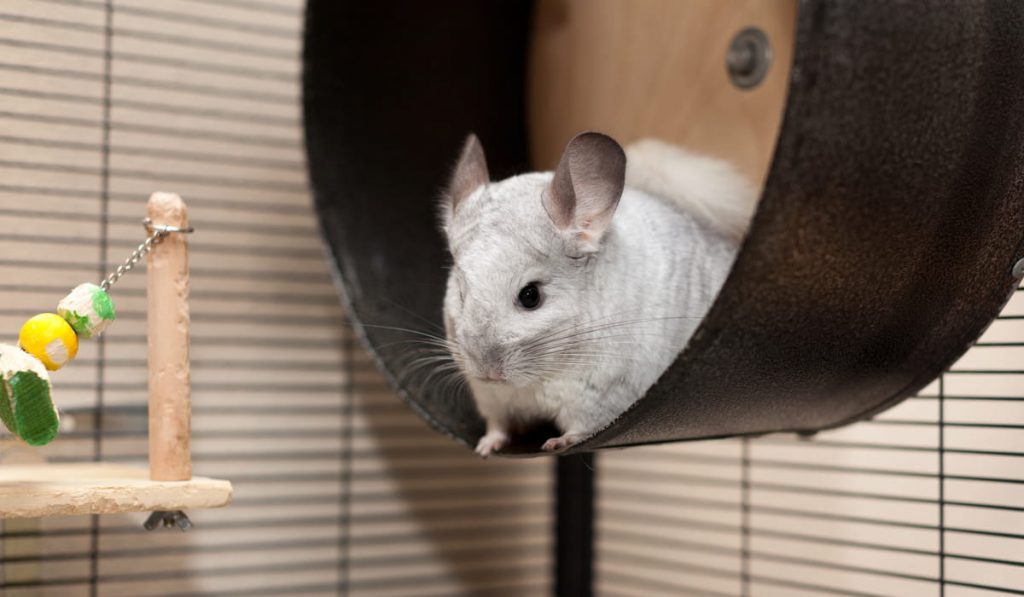
How to Raise Healthy Chinchillas
Here are tips to raise healthy chinchillas:
- Select Healthy Baby Chinchillas from the Pet Shop: When you are getting your chinchilla from the pet shop, you should select healthy baby chinchillas. Baby chinchillas are born with full fur, open eyes, and are very active. You should check the ears for excess wax and redness as they are signs of infections. The anal region should also be dry.
- Give Your Chinchillas a Balanced Diet: You should give your chinchillas grass, hay, pellets, vegetables, straw, etc. as their major diets and only give them fruits, seeds, grains, etc. as treats.
- Clean Your Chinchilla Cage Regularly: Always make sure that the cage is clean. You should also potty train them as well.
- Give Your Chinchillas a Dust Bath: Chinchillas need a dust bath so that their fur can become dry. Remember that chinchillas live near mountain tops and the humidity there is low. In high humidity, moisture can build up in the fur of your chinchillas and it can encourage the growth of bacteria. To prevent the buildup of moisture, give your chinchillas a dust bath.
- Visit the Vet: Chinchillas need to see the vet at least once yearly.
Now that you know how to raise healthy chinchillas, it’s time to talk about what to expect when visiting the vet.
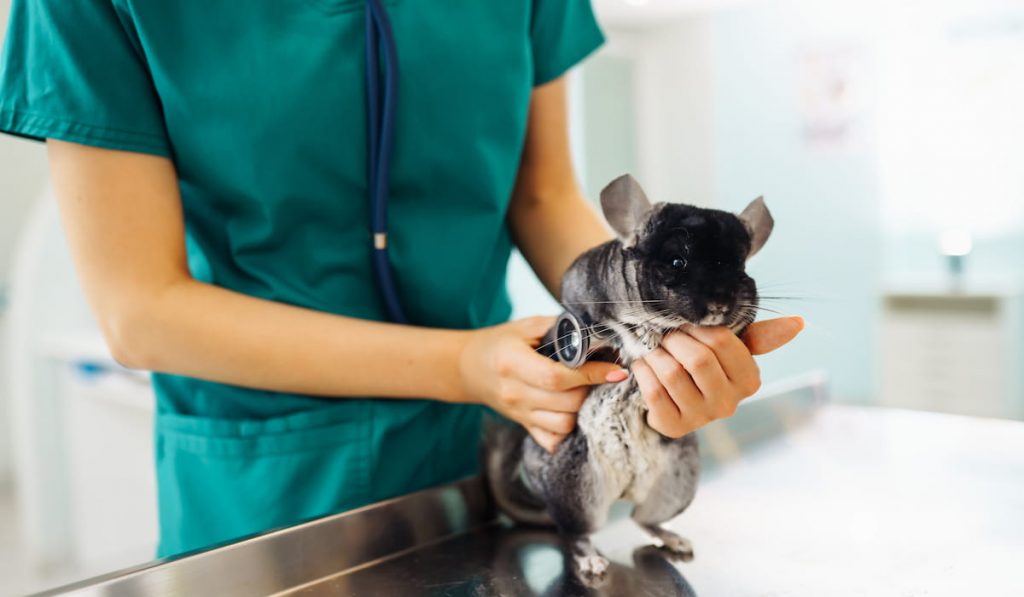
Visiting the Vet
A veterinarian should check your chinchilla within 48 hours of acquiring it. Vets should also examine your chinchillas at least once annually.
Vets usually examine chinchillas for:
- Gender: At the first visit, the vet will tell you the sex of your chinchilla.
- Weight: The vet will check if the weight of your chinchilla is okay. They will tell if your chinchilla is obese or under weight.
- Abnormalities: The vet will check for various abnormalities such as broken limbs, deformed incisors, etc.
- Internal Parasites: With a sample of your chinchilla’s poop, a test can be conducted to know whether parasites are present in your chinchillas or not.
- Malnutrition or Dehydration: Vets can tell you if you are giving your chinchillas enough food and water.
- Behavior: If your chinchillas are showing signs of stress or discomfort (beyond what is normal), the vet can verify and give you needed tips.
- Condition of Fur: One major way to know about the health of a chinchilla is to examine its fur. Chinchilla fur should be full and dry.
The vet will also make other necessary tests. Remember to take your chinchillas to the vet at least once per year.
Related Questions and Answer
Got any questions? The answer may be just below waiting for you:
1. Can Chinchillas Transmit Diseases to Humans?
If you do not keep the cage of your chinchillas clean, bacteria and fungi already present in your house can grow in your chinchilla cage and get transmitted to you.
Also, the fur of chinchillas can be home to harmful microbes if it is not kept dry. This is why chinchillas always need a dust bath.
2. How Long Will Healthy Chinchillas Live?
Healthy chinchillas live for an average of 10 years. Some can live for 8-9 years while others can live for more than 10 years.
3. Can You Raise Just One Chinchilla?
Chinchillas are social rodents, so you should not raise just one. Raising just one chinchilla can cause depression. If you do not want to raise two chinchillas, you can raise a chinchilla with another pet such as a rabbit or a guinea pig.
4. Should You Allow Your Chinchillas to Play Outside?
You should not allow your chinchillas to play outside as you are exposing them to the high temperature of the sun, moisture from grasses, and other environmental factors.
In the evening, you can allow your chinchillas to play in your home out of their cage, but they should not go outside.
5. What Diseases Do Vaccines Aim to Prevent in Other Pets?
Examples of diseases that vaccines aim to prevent in pets are:
- Influenza: This is a virus that causes respiratory issues. It is very deadly when left untreated.
- Rabies: This disease infects the nervous system, causes ill-temper, death, etc. It is contagious among dogs and dogs need to be vaccinated to prevent rabies.
- Hepatitis: This disease affects the liver, causing lethargy, diarrhea, and even death.
- Distemper: This popular disease among dogs and other pets causes high temperature, runny nose, etc. It can lead to death if left untreated. It is better to vaccinate the animal against it.
- Lyme Disease: This disease is caused by bacteria transmitted by ticks. It causes fever, loss of appetite, discomfort, joint pain, and more.
Remember to vaccinate your pets that need shots.
Final Thoughts
Chinchillas do not need to be vaccinated, but they should visit the vet regularly. Remember to raise your chinchillas to be healthy by giving them the right diet and regularly cleaning their cage.

